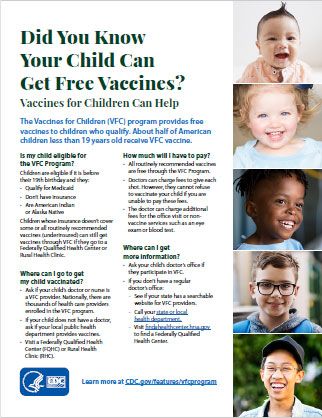
In recent years, there has been a growing concern among parents about the safety and necessity of pediatric vaccinations. While some parents may have reservations and doubts, it is essential to understand the importance of vaccines in preventing diseases and protecting children’s health. This article aims to provide parents with an overview of pediatric vaccinations, their benefits, common misconceptions, and the current vaccination schedule.
The Benefits of Vaccinations
Vaccinations play a crucial role in preventing the spread of infectious diseases and safeguarding children from potentially harmful illnesses. By immunizing our children, we not only protect them but also contribute to the overall health of the community. Vaccines have been proven to be effective in preventing diseases like polio, measles, mumps, rubella, hepatitis, and many others.
Furthermore, vaccination helps reduce the risk of severe complications and long-term consequences associated with these diseases. By providing immunity at an early age, vaccines strengthen the immune system and offer long-lasting protection against various infections.
Common Misconceptions about Vaccinations
Despite the overwhelming evidence supporting the safety and importance of vaccinations, many misconceptions and myths continue to circulate. It is crucial for parents to separate fact from fiction to make informed decisions regarding their child’s health. Here are a few common misconceptions:
Myth 1: Vaccines cause autism – This widely spread myth has been thoroughly debunked by scientific studies and extensive research. There is no proven link between vaccinations and autism.
Myth 2: Vaccines weaken the immune system – On the contrary, vaccines activate the immune system and prepare it to fight against specific diseases. They help the immune system develop the necessary defenses without causing harm.
Myth 3: Vaccines are just a money-making scheme – Vaccines are rigorously tested and developed by scientists and healthcare professionals. Their purpose is to protect public health and prevent the spread of infectious diseases.
The Current Vaccination Schedule
The vaccination schedule recommended by healthcare professionals ensures that children receive the necessary immunizations at the right age. This schedule takes into account the best available scientific evidence and aims to provide maximum protection.
It typically starts with a series of vaccines given during infancy to protect against diseases like hepatitis B, rotavirus, diphtheria, tetanus, whooping cough, and Haemophilus influenzae type b (Hib). The schedule then continues with booster shots and additional vaccinations in childhood and adolescence, including vaccines for measles, mumps, rubella, varicella, human papillomavirus (HPV), and meningococcal disease.
It is important to consult with healthcare providers to ensure your child receives all necessary vaccines according to the recommended schedule.
Conclusion
Pediatric vaccinations have had a significant impact on public health and have saved countless lives throughout history. They are designed to protect children and communities from potentially preventable diseases. It is crucial for parents to understand the importance of vaccines, dispel common myths, and follow the recommended vaccination schedule to ensure the overall health and well-being of their children.

